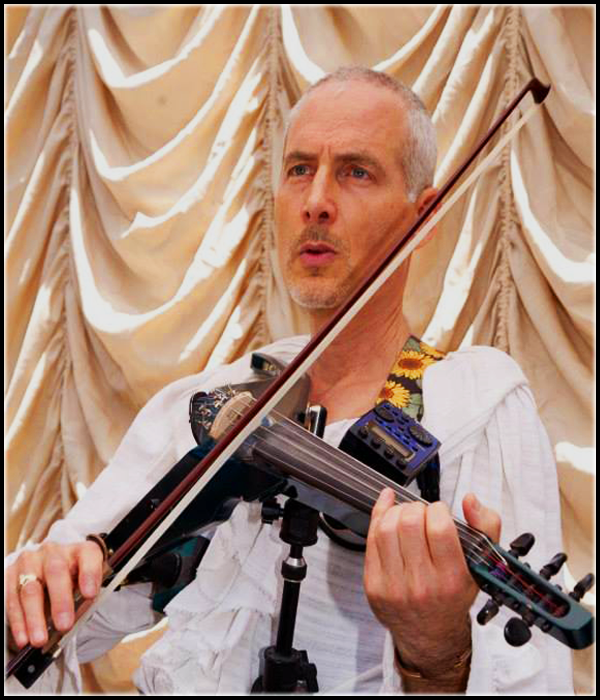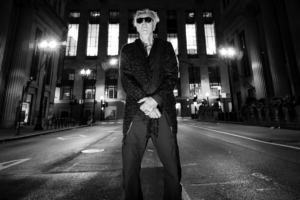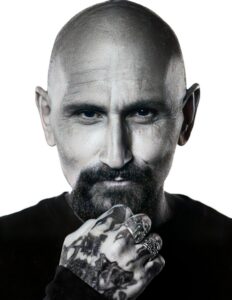ZEN LAND – The Progressive Supergroup


Interview with Michael Zentner
1. Please introduce the band to the readers.
We have Zen Land bassist, Doug Lunn, of Mark Isham and Andy Summers fame; guitarist, Tim Young, Founding member of Seattle power trio, Thruster with Pearl Jam/Soundgarden drummer, Matt Chamberlain, and Kneebody bassist, Kaveh Rastegar; key-master and ambient recording artist, Dean De Benedictis, alias Surface 10, also of The Stratos Ensemble; and harpist, Vonette Yanaginuma, from my first solo record and from many other important records by the likes of Nelly Furtado, Seal, Outlawz, etc.
2. What is the concept behind the name of the band?
The musical conception for this band was mine and I put it together, so using the first 3 letters of my own sir name in the title seemed appropriate. That, and the fact that the word “Zen” is derived from the Sanskrit, Dhyāna, meaning absorption or meditative state, which is exactly the state that Zen Land music is intended to produce in its audience.
3. How did you persuade all the contributing musicians to participate?
These are all close friends and collaborators from past projects and performing situations who have supported me through the years and continue to do so. I admire all of them greatly and I am very grateful for their artistry and support. Particularly, Dean De Benedictis who really inspired me to push ahead with this project and whose advices and guidance have been instrumental in the process.
4. Most of the musicians in the band, have a great background as session musicians. Please let us know about all the details.
There are extensive bios on each of us on the Zen Land website, www.zenlandband.com but some highlights would be performing and recording with the likes of Sting, Andy Summers, Bruce Springsteen, Robby Krieger of The Doors, members of The Who, Guns N’ Roses, Peter Gabriel, Red Hot Chili Peppers, and more.
5. You have a recent album in the market, describe us the process of the production and recording.
We performed the record virtually live in studio. I took the session files home and did a few weeks of premix production on my ProTools rig (cleaning up the tracks and editing to create the actual song structure you hear on the record). After preparing the tracks for the mix, I took them to my “go to” LA mix engineer, Dave Jenkins, who gave us very nice fat, lush mixes of the each track.
Then our keyboard maestro, Mr. De Benedictis (a great record producer in his own right) did such a brilliant remix and edit of the track entitled “Song,” I decided to jump it into the actual album sequence rather than sticking it at the end as a bonus remix. I put the full length album mix at the end, instead, and called it “Song Long.”
5a. And the album artwork?
I came up with a concept for the cover image, which was executed by Dork Design here in LA and then sent to Steve Averill (of U2 fame) in Dublin, who create the CD package graphics and design.
6. How do you promote your music in the market?
About a week after the official release, I posted the record’s first official video, shot for the De Benedictis “Song” remix, directed by Synthian Sharp, and based on a little narrative concept of my own.The video has done a lot to generate interest in the record, getting tens of thousands of views on YouTube. The record is also in rotation on probably the most widely syndicated ambient music program in the US: “Echoes.” Zen Land was recently listed in the program’s top 25 list of new albums. We were also recently in the studio recording a cover of the Police tune, “Spirits in the Material World,” as requested by the band’s management, to be posted (along with an accompanying video Directed by LA filmmaker, Cherie Bugtong) to the Police Facebook page in conjunction with their marketing efforts for the new Police documentary, “Can’t Stand Losing You.” Just one example of how we are employing social media in our promotional efforts. By the way, Zen Land’s own Facebook and Twitter pages are rocking at the moment.
6a. How was it that you guys were invited to have your performance posted to a Facebook page (the official Police site) with somewhere in the neighborhood of 5.3 million page likes?
It was chiefly do to our bassist, Doug Lunn’s, long association with Police guitarist, Andy Summers. Doug was the bassist for Andy’s solo project for many years, beginning their association shortly after the breakup of The Police.
7. Do you think that your music would be suitable for relaxation of patients and other people that seek for a relaxing atmosphere?
People use drugs to relax. But drugs, in my opinion and per my observations, make its users stupid. If you want to relax, put on some headphones, close your eyes and bliss out to Zen Land, with no “side” effects.
8. Do you believe in music therapy?
Yes.
9. How do you face the framework of online streaming music?
With the understanding that music licensing for film and television and touring is really the only viable method of supporting one’s act these days. Our management is aggressively pursuing these avenues.
10. How do you plan to reproduce the music of the band on stage?
What happens with us when work is quite organic. What you have on the Zen Land album are basically first take performances of each of the tracks with very little in the way of overdubs. When we record, the sessions are virtually live affairs. So what one would get, seeing Zen Land in a live venue, would be quite close in quality to what one hears when he puts on the CD. The interpretation of each piece would vary greatly, however, as these are very far from static. They transform widely every time they are played.
11. What are your future plans for a new album?
As mentioned earlier, we’ve just completed the 1st track for the next Zen Land album – the Police cover. So that process is already underway. The next Zen Land album is slated for release in early 2016.
Info: http://www.zenlandband.com/


